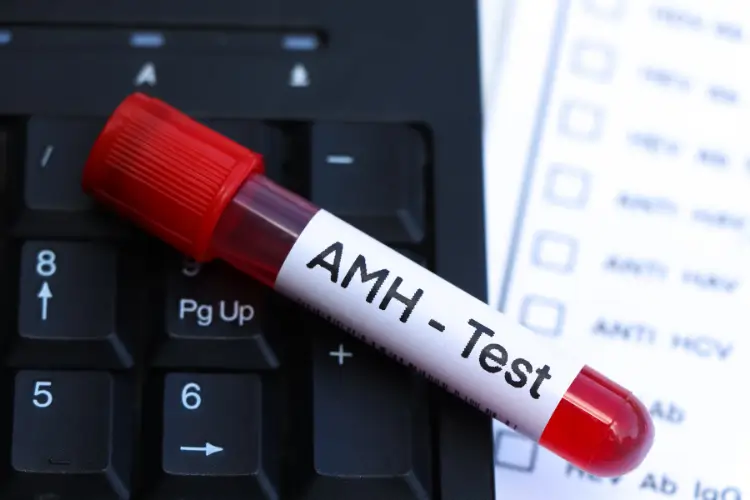If you’re exploring your fertility health, you might have encountered the term Anti-Mullerian Hormone test. It’s one of the most reliable indicators of ovarian reserve. In other words, it reflects how many eggs remain in a woman’s ovaries. But what does it tell you about your fertility?
The AMH test measures the level of AMH in the blood. AMH is a hormone produced by the small follicles in the ovaries, which contain immature eggs. Unlike other fertility tests that must be done at a specific point in your menstrual cycle, this test can be done anytime. It’s a simple blood test, but its results can provide profound insights into your fertility health. Let’s find out all about it in this article!
Why is it Important?
The test is crucial because it tells you more than just a number—it helps predict your ovarian reserve. This matters for several reasons:
- The number of eggs declines over time, especially as you age.
- Knowing your AMH levels can give you an idea of how many eggs you still have and help guide decisions about your reproductive future.
It’s important to note that the test doesn’t tell you the quality of those eggs; it only estimates their quantity. Comparing your results with normal amh levels by age can provide additional context and help you understand how your ovarian reserve compares to typical expectations.
What AMH Levels Reveal About Fertility
When you check your levels, it’s natural to wonder what these numbers mean. Here’s a general guide to interpreting it:
High AMH: High levels can indicate a good egg reserve. However, very high AMH might also be a sign of conditions like polycystic ovary syndrome (PCOS), which can affect ovulation.
Normal AMH: This suggests a healthy ovarian reserve and reflects what’s expected for your age.
Low AMH: Low levels can indicate a reduced ovarian reserve, which might make it more difficult to conceive naturally. If you’re seeing low numbers, it doesn’t mean pregnancy is impossible—it just means you may need assistance, like fertility treatments, or you may want to consider options like egg freezing.
Factors That Can Affect AMH Levels
Several factors can influence your levels, including:
- Age: AMH naturally declines as you age, especially after your mid-30s.
- Hormonal health: Conditions like PCOS can cause elevated levels.
- Medical treatments: If you’ve had treatments like chemotherapy, your levels might be lower due to their impact on ovarian function.
How Does AMH Affect Your Fertility Plan?
Whether you’re actively trying to conceive or planning for the future, your AMH levels can help shape your fertility journey. Here’s how it can influence different situations:
- Trying to Conceive Naturally: If your levels are within a normal range, it’s a good sign that you have a healthy ovarian reserve. However, if they are low, it doesn’t mean you can’t conceive—it just means time might be a more significant factor.
- Considering Egg Freezing: For women who aren’t ready to have children, the test can guide the decision to freeze eggs. If your AMH is low, freezing eggs sooner rather than later could help preserve fertility.
- Undergoing Fertility Treatment: For those exploring options like IVF (in vitro fertilization), these levels are often used to predict how well your body will respond to ovarian stimulation. Higher levels mean a better response, but remember, quality is key, too.
The AMH test is a powerful tool for understanding fertility, but it’s just one piece of the puzzle. If you’re trying to make decisions about your reproductive future, such as when to start trying for a baby or whether to freeze your eggs, knowing your levels can provide clarity. It’s best used in a conversation with your fertility specialist, who can help interpret the results and create the right plan for you. Whether you plan to conceive now or in the future, checking your levels can provide valuable insights into your fertility options and guide your next steps.




